From Casual to Causal
Causal questions
- The heart of causal analysis is the causal question.
- It dictates data analysis, methods, and target populations.
Goals of data analysis
Causal questions are part of a broader set of questions we can ask with statistical techniques related to the primary tasks of data science:
description
prediction
causal inference
Goals of data analysis
- The goal is often muddled by both the techniques we use (regression, for instance, is helpful for all three tasks) and the way we talk about them.
- When researchers are interested in causal inference from non-randomized data, we often use euphemistic language like “association” instead of declaring our intent to estimate a causal effect
Haber et al. 2022. “Causal and Associational Language in Observational Health Research: A Systematic Evaluation.” Am J Epidemiol 191 (12): 2084–97.
Schrödinger’s Causality
- “Associate” most common root word for effects.
- Only 1% used “cause.”
- Action recommendations in 33% of studies.
- Stronger action recommendations than implied by effect description.
- Only 4% used formal causal models.
Haber et al. 2022. “Causal and Associational Language in Observational Health Research: A Systematic Evaluation.” Am J Epidemiol 191 (12): 2084–97.
Schrödinger’s Causality

Haber et al. 2022. “Causal and Associational Language in Observational Health Research: A Systematic Evaluation.” Am J Epidemiol 191 (12): 2084–97.
“Our results suggest that Schrödinger’s causal inference - where studies avoid stating (or even explicitly deny) an interest in estimating causal effects yet are otherwise embedded with causal intent, inference, implications, and recommendations - is common.”
Haber et al. 2022. “Causal and Associational Language in Observational Health Research: A Systematic Evaluation.” Am J Epidemiol 191 (12): 2084–97.
Goals of data analysis
description
prediction
causal inference
Goals of data analysis
description
prediction
causal inference
Goals of data analysis
description
What phenomena occur / occurred in the past?
- What is the prevalence of diabetes in the United States?
- What are the demographics of our customers?
prediction
causal inference
Goals of data analysis
description
What phenomena occur / occurred in the past?
Validity concerns: Measurement error, sampling error
Connection to causal inference: Understanding population characteristics, examining outcome distributions, checking if data structure matches research question
prediction
causal inference
Goals of data analysis
description
What phenomena occur / occurred in the past?
Validity concerns: Measurement error, sampling error
Connection to causal inference: Understanding population characteristics, examining outcome distributions, checking if data structure matches research question
prediction
Whether a certain phenomena will occur given a set of circumstances
Validity concerns: Predictive accuracy, measurement error
Connection to causal inference: Some techniques use model predictions to answer causal questions
causal inference
Goals of data analysis
description
What phenomena occur / occurred in the past?
Validity concerns: Measurement error, sampling error
Connection to causal inference: Understanding population characteristics, examining outcome distributions, checking if data structure matches research question
prediction
Whether a certain phenomena will occur given a set of circumstances
Validity concerns: Predictive accuracy, measurement error
Connection to causal inference: Some techniques use model predictions to answer causal questions
causal inference
Why does a phenomena occur
Validity concerns: Lots of assumptions (many that cannot be checked, coming soon!)
Why Prediction ≠ Causation
Predictive power doesn’t guarantee causal accuracy, especially when:
- The outcome has many causes but the model focuses on one exposure
- The true causal effect is small
- The model excludes non-causal predictors for methodological reasons
The Ice Cream & Crime Example
- You have ice cream sales data but no weather data
- Ice cream sales correlate with crime rates and can predict them moderately well – suppose this correlation exists because both variables are caused by weather!
Variables that are invalid from a causal perspective (like ice cream sales) can still provide predictive power by acting as proxies for true causal factors (like weather)
The first step is asking a good causal question
Diagramming causal claims
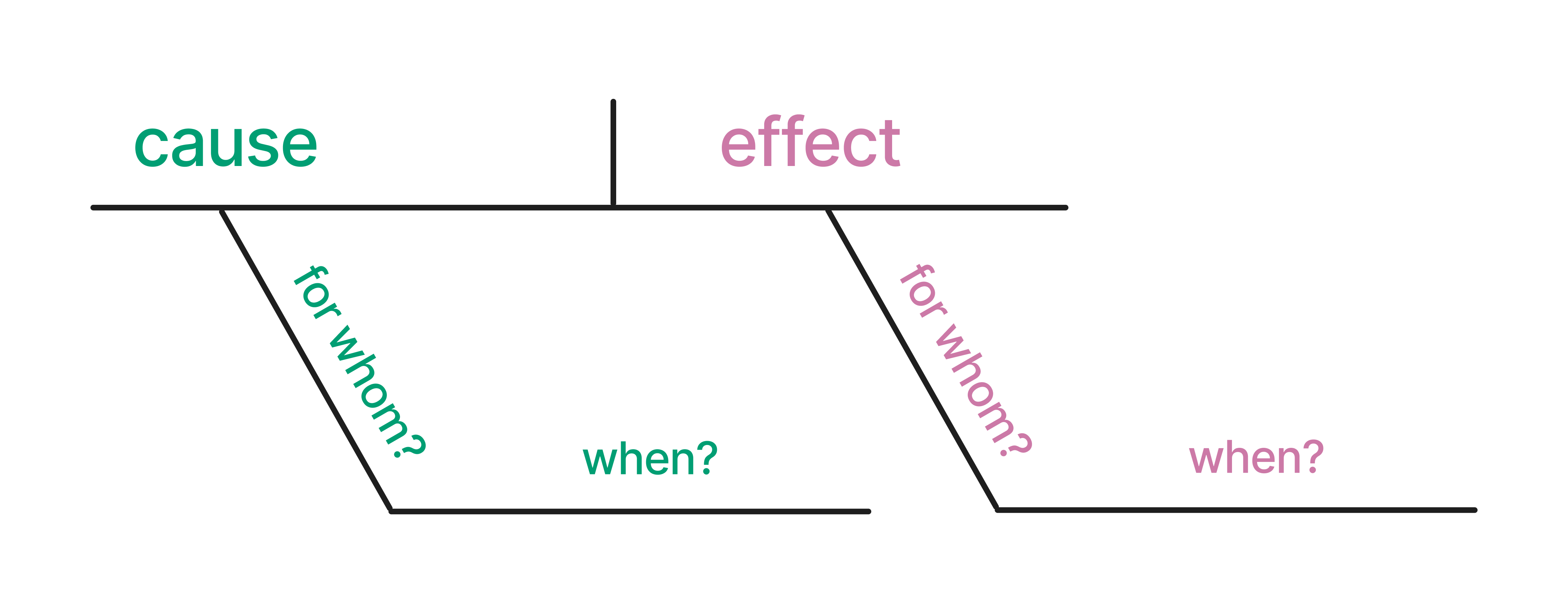
Smoking causes lung cancer
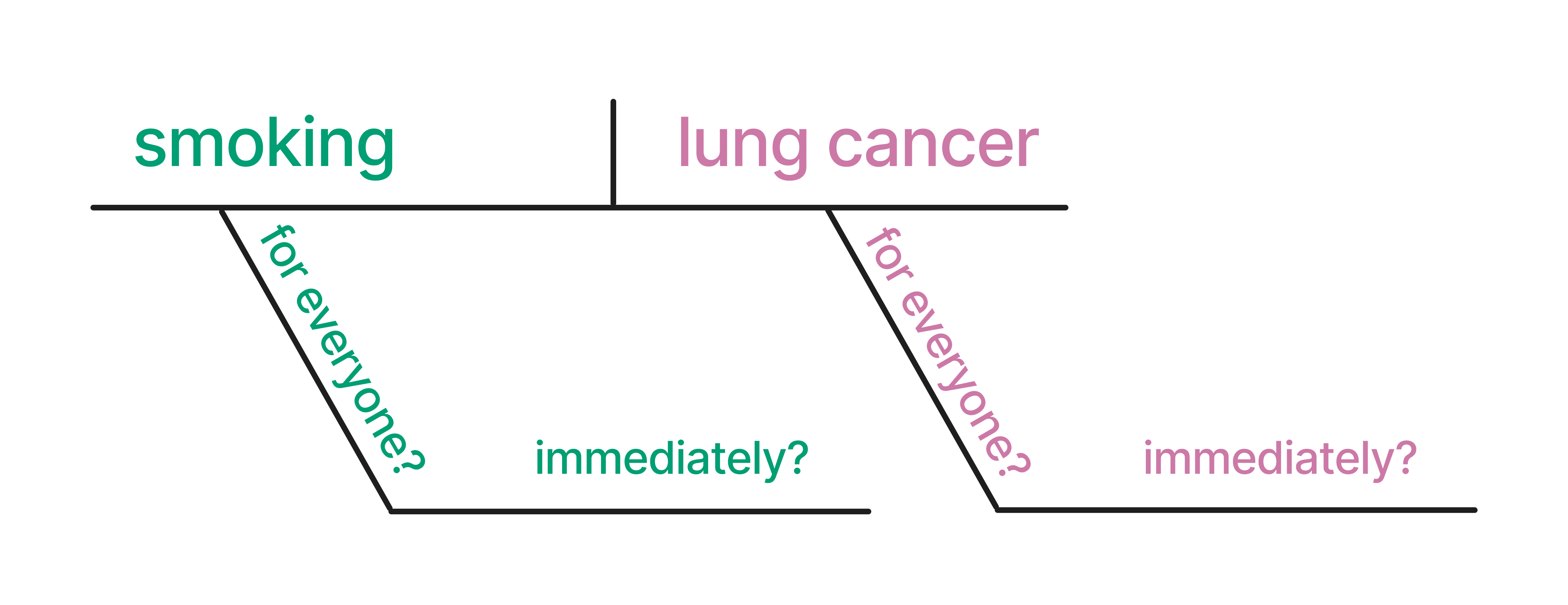
Let’s try to get more specific
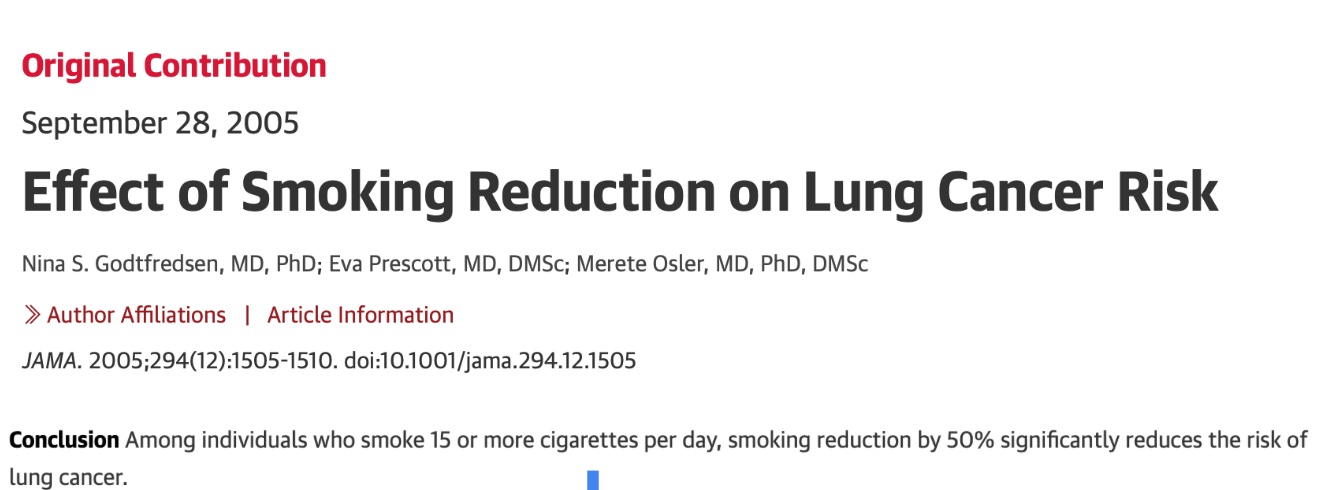

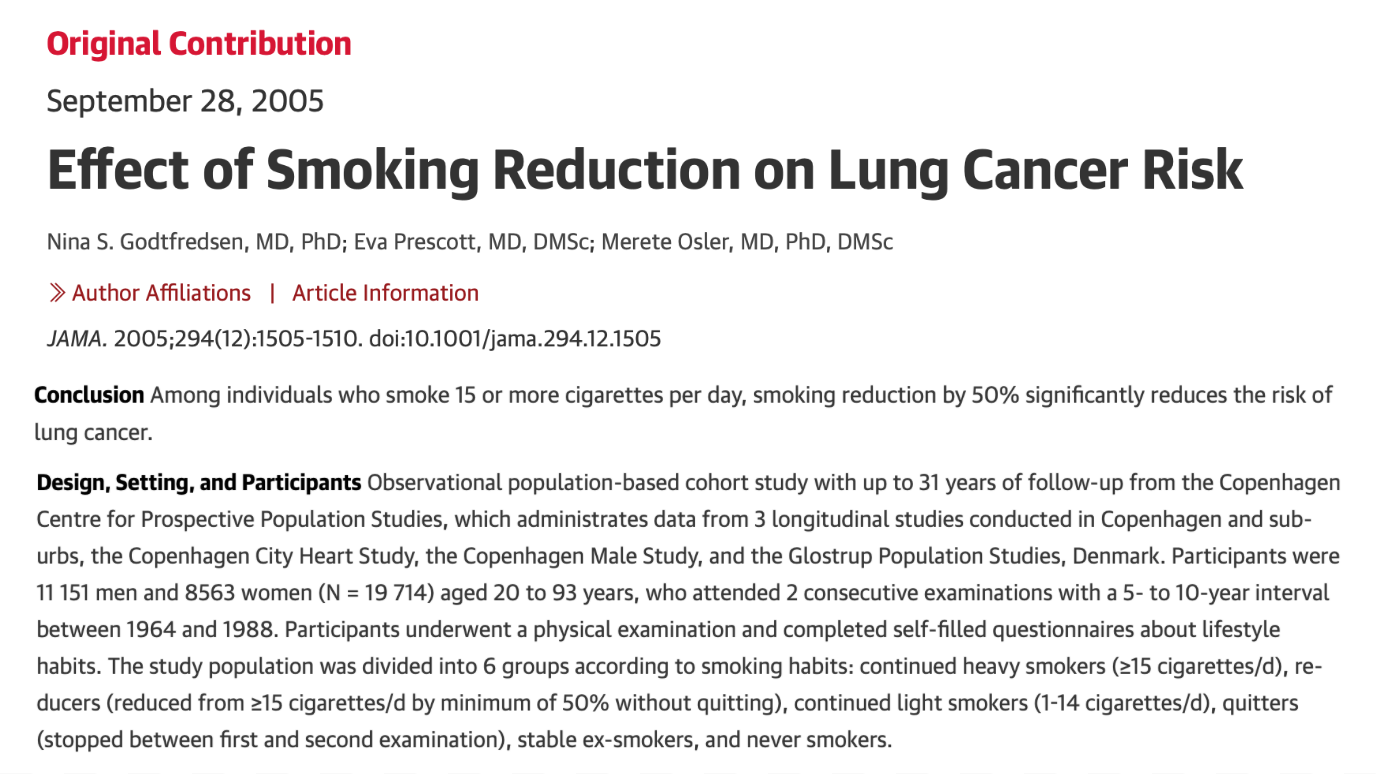
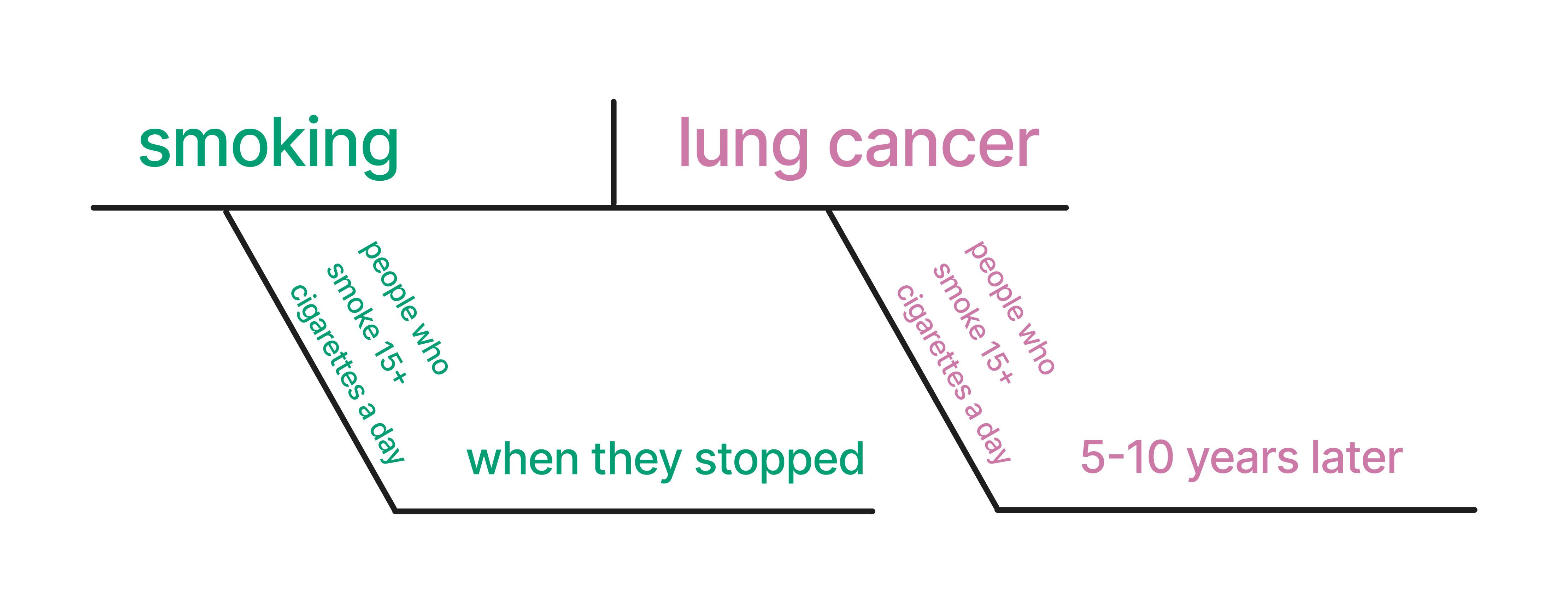
Target Trial
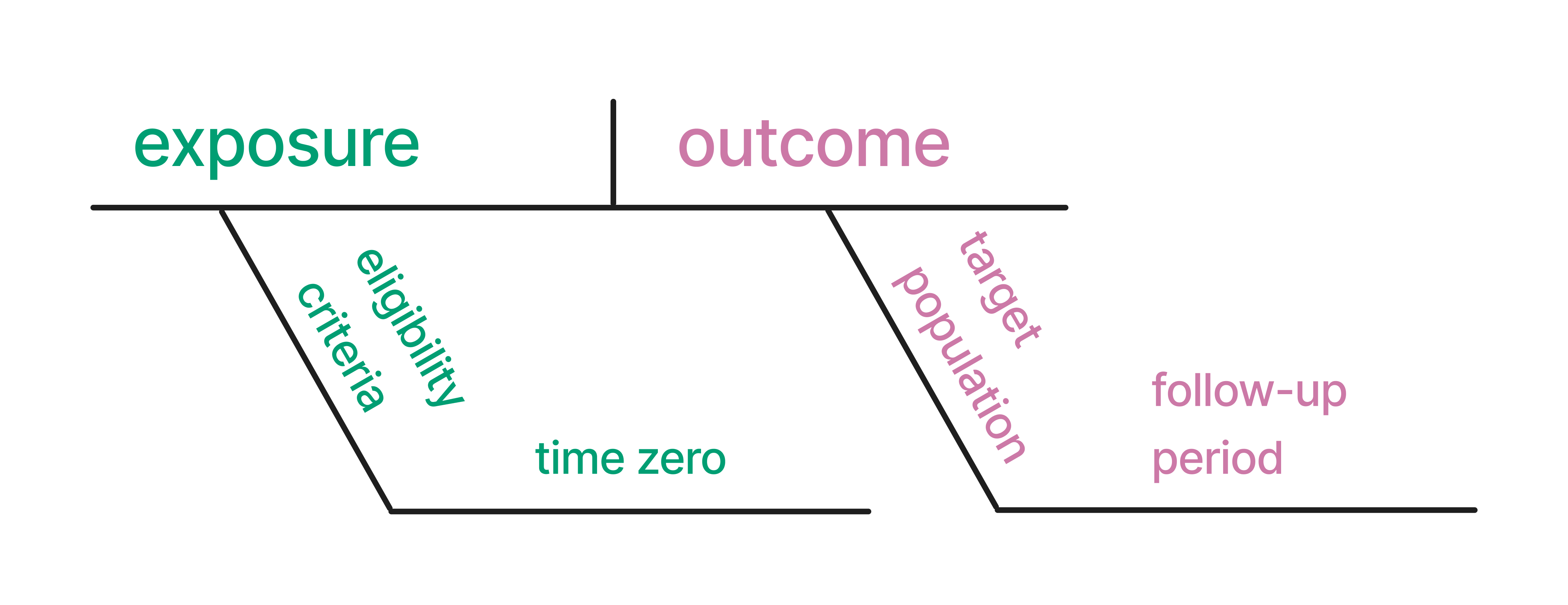
Asking good causal questions
The claim
The evidence
Asking good causal questions
The claim
Smoking causes lung cancer
The evidence
For people who smoking 15+cigarettes a day, reducing smoking by 50% reduces the risk of lung cancer over 5-10 years
Asking good causal questions
The question
Does smoking causes lung cancer?
The evidence
For people who smoking 15+cigarettes a day, reducing smoking by 50% reduces the risk of lung cancer over 5-10 years
Asking good causal questions
The question
For people who smoke 15+ cigarettes a day, does reducing smoking by 50% reduce the lung cancer risk over 5-10 years?
The evidence
For people who smoking 15+cigarettes a day, reducing smoking by 50% reduces the risk of lung cancer over 5-10 years
Application Exercise
bit.ly/sta-779-f23-ae3
Slides by Dr. Lucy D’Agostino McGowan